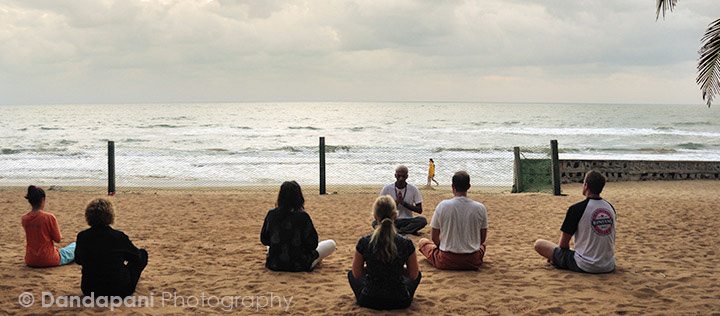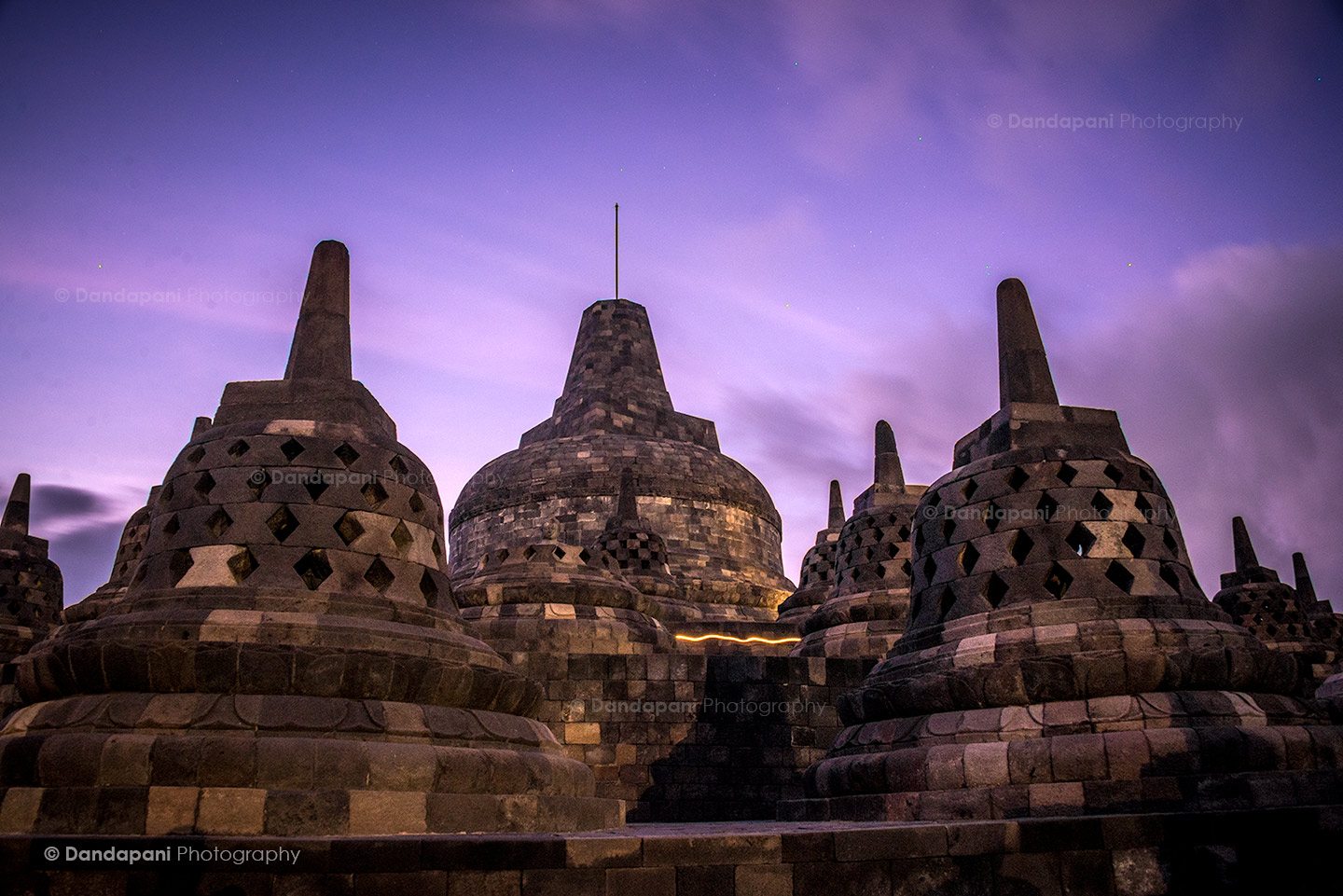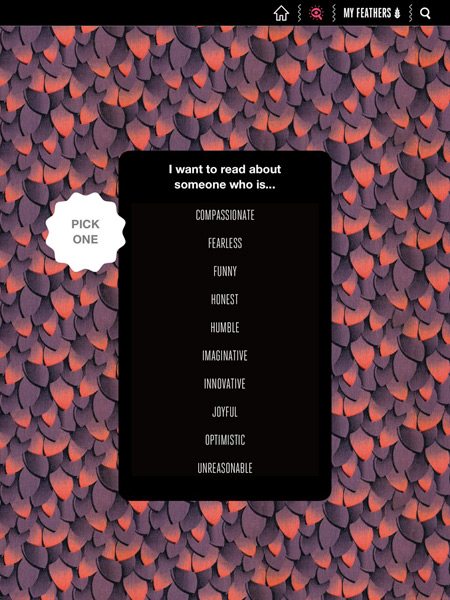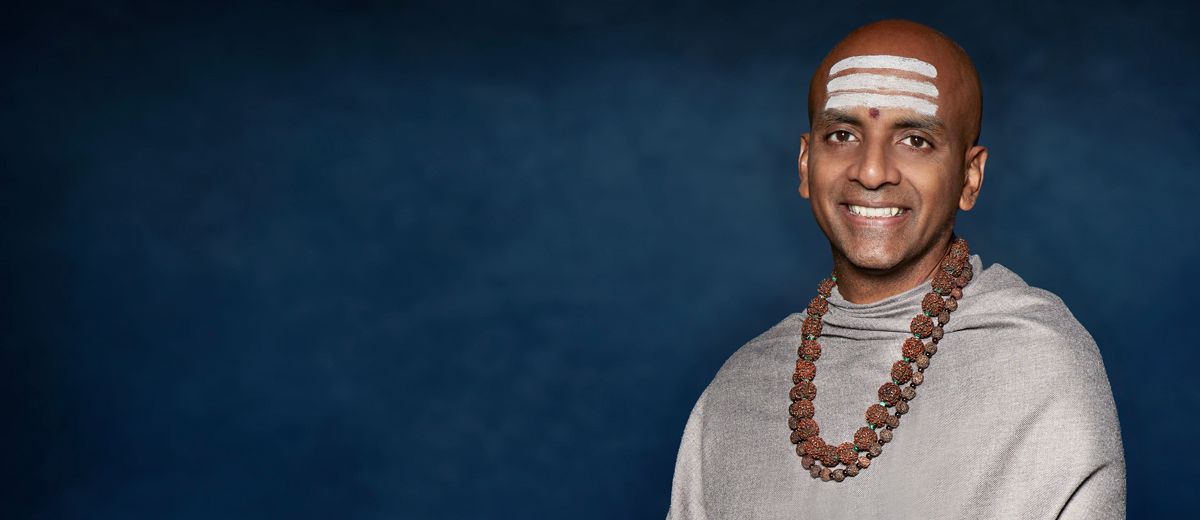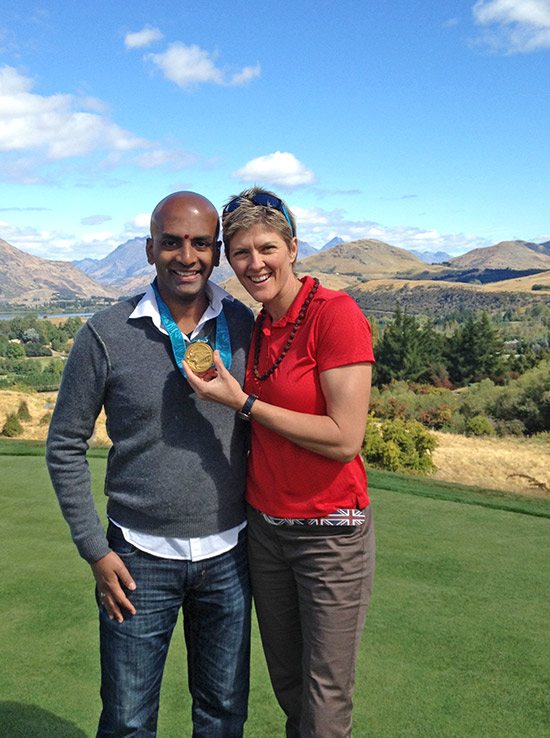
Dandapani: Good morning everyone. Greetings from Sydney Australia. I am here with a dear friend of mine a five time Olympian and an Olympic gold medalist Natalie Cook. We met in Queenstown, New Zealand earlier this year. We were speaking at a conference and Natalie spoke about sustaining motivation. It’s a really fascinating topic to me, and it’s something that as a monk we were trained to do as well, and to consistently apply something in your life, a too,l over a period of time so that actually it actually becomes a sustainable change in your life. So Natalie thank you for doing this little interview with me.
Natalie: Pleasure It’s great to see you in Sydney you like becoming more Aussie
Dandapani: Well it’s my third visit to Australia in 9 Months. I’ll come back in two months’ time.
Natalie: We would love to have you!
Dandapani: So tell me more about sustaining motivation.
Natalie: Well it’s an interesting topic. To get out of bed every day for the last twenty years, put on a bikini and go chase volleyball around a sandpit. The number one goal is to get the ball over the net and land it in the other person’s sand pit, before it hits yours. Like it’s pretty simple. Why would I do that for the last 20 years? The motivation for me is to go to the Olympic games and represent my country and wear the green and gold and be the very best I can be at what I chose, which was beach volleyball. And that permeates through every part of my life and it’s about having excellency in everything I do. when I hang out with people they ask me, “how did you stay motivated for twenty years?” and that’s the number one question I get asked. So, I had to sit and really think about that, and I was like “Well, isn’t everyone? Doesn’t it just happen? Didn’t I just get it? Don’t you have it too?" And I know you do, as a monk with your practice, and I thought that was normal. Then I discovered that people have challenges making their own motivation, have challenges with sustaining things. They start and then following through and finishing becomes a challenge. So I had to sit, think, which I know you do a lot of, and decide and discover what it is that kept me motivated. From that I’ve developed this amazing thirty day program which is a video series that you get a little piece of me every day to kick-start your motivational mojo. So that’s what really has inspired me to learn about my own motivation and learn about what does or doesn’t motivate others.
Dandapani: I’ll come back to the video and what you have online, but when was the first time you had the thought, "I want to compete in the Olympics?"
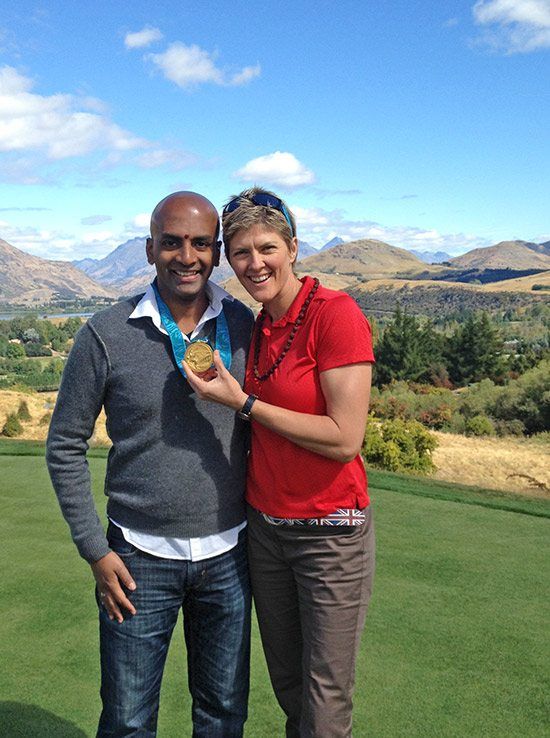
Natalie: I was 8 years old. I was sitting in front of the TV watching at the time the commonwealth games and one of our Aussie swimmers, Lisa Carey, and she’s still around doing amazing things and a very big icon in Australian sports. She won the 100 metre freestyle in the 1982 Commonwealth Games. I had just turned eight and I was watching her get out of the pool, putting her Australian tracksuit on with a gold medal around her neck, watching the Australian flag rise, singing “Advance Australia Fair,” and at eight years old I said, "I want to do that." Now I did not know how, I didn’t know when or what I needed to do, but I just knew that that emotion she was expressing that feeling she had was something I wanted to achieve for myself. And it happened. It was great.
Dandapani: So there’s millions of people around the world, millions of kids that think “I want to be an Olympic gold medallist, I want to play for Manchester United, I want to win the Wimbledon,” great, lots of kids think that. So what made you so different? I mean at 8 years old you were no different than any other kid watching a live telecast the Olympic Games or Commonwealth games going gold medal, great, proud moment, I want to do that. Everybody says that, but you are one out of 22 million Australian’s that’ve done it.
Natalie: So I think every kid says “I want to do that” and that’s all they say. Then the next thing is well “what are you going to do to achieve that? And what do you have to be to do the things to achieve that. So the question my coach asked me he said “what do you want? I said to win the olympic medal, duh, that’s why I am here. And he said, “do you really want it?” And I said yea I really want it. And then he proceeded for the next 10 minutes “do you really really really want it?” And I said yea I really really want it!” and he kept going and I kept saying “I told you I really want it!” And I started salivating, and I think that’s the difference with kids today, they go “I want it. and that’s it and this evoking of this passion and inspiration and desire and dedication and commitment always was there all time was in every single cell of my body. And sacrifice. And I lived it every day. I got up every morning with, “I want to be an Olympic gold medalist and one day this changed to realising that I am an Olympic gold medalist, before it even happened”.This is a really unique spin in that, it’s like the chicken and the egg, do you believe in something before you succeed? Or do you have to succeed before you believe. And I think if you can believe in it first and by me declaring I’m an Olympic gold medalist two years before it happened freaked a lot of people out. But what it did for me was make me accountable and had me live into what it means. To be an Olympic gold medalist you have to do all these things. So when I declared that I was, it meant that I had to do them to be successful. Rather than hoping I might stumble across it along the way, and so it has been a very interesting journey.
Dandapani: It’s also very interesting one of the things my Guru talked about in the monastery is he always said to me, “things manifest in the mental plane first before they actually manifest in the physical plane. if you can actually get a clear visual concept of what it is you want mentally, and really believe it and fill it with emotionally and visualisation, it will start to manifest in the physical plane. And that is similar to what you’ve done by telling yourself you’ve have already won, and visualised yourself with a green jacket and gold medal and saluting to the flag.
Natalie: And so much so that you actually go and get the green jacket for you, and you make it as real as you can. so once the visualisation is there you’re like, “oh cool that’s what it’s like” so how do I make it look like that in real life before it happens so that when it happens it’s just a natural seamless progression. So I tend to surround myself so leading into Sydney when I won the Olympic gold medal with Kerri Pottharst— it was here, 30 minutes from here on Bondi beach. Brisbane and it was really cool
Dandapani: That must have been an awesome experience being in your home country.
Natalie: Usually we travel the world playing the wonderful sport of beach volleyball with not much support or crowd support, but to be here and to have ten thousand Aussies here screaming with a national chant which you know:
Dandapani: Aussie!!! Aussie!! Aussie Oy!! Oy!! Oy!!
Natalie: Echoing, I mean that is very cool. We surrounded ourselves with gold. Everything I owned in my life was gold: gold toaster, gold sheets, gold boxer shorts, gold sun glasses, gold watch.
Dandapani: You can’t forget a pair of gold shorts.
Natalie: Yeah, you’ve got to sleep.
Dandapani: Right, exactly. That’s true.
Natalie: And so it’s really important. I even washed my body with gold soap.
Dandapani: Did you really?
Natalie: Absolutely and when I smell it today, it makes me feel like I am on top of the podium again. It is unbelievable.
Dandapani: It’s interesting two days ago I spoke at a conference at the Commonwealth bank in Australia and it’s called wired for wonder and one of the things talked to people about in my closing keynote was how you really have to want the lifestyle that you’re looking for. A lot of people want to change, they want to create a new lifestyle for themselves, but they don’t want it enough. That’s what I focused on towards the end, I said, “you really really have to want it, in every core of you. You know, I wanted to be a monk and everyone told me I couldn’t be or shouldn’t be or I should do something else, but I said no this is what I want to be, I’m going to do it. You can support me or not support me. Totally you’re choice. You just have to want it.
Natalie: And now I think that most people add some words in there and they want other people to do it for them. And they say “I want it, but can you do it for me?” And when you realize hat if you want it bad enough and you have to do it all and other people will support you, and maybe people along the way will do little things, but you have to be the pilot of your plane and the captain of your ship. If there is something wrong in the back of the plane you have to go fix it. You don’t point to someone else and say go fix the plane. This is your plane. If you want it to arrive on time then you have to make sure it’s right and you have to do the hard work. I think people are getting lazy they don’t want to do the hard work anymore.
Dandapani: People have this great sense of entitlement these days, too. They think I deserve this - you don’t deserve anything you don’t work for.
Natalie: That’s right, that’s exactly right because I believe you do deserve it, I believe that everyone deserves it and they are worthy, if you are prepared to do the work. And you will benefit, the rewards are there if you prepare to do the work and you have to really really really really really want it.
Dandapani: Exactly, Here’s the other thing I wanted to ask you: The last 18 years, or 18 years ago, I learned a to meditation technique with my guru. This was before I was a monk, and I’ve been doing the same meditation every day until today. I haven’t modified it or changed it. In the West it is so hard for people to grasp that concept. When I go somewhere to teach people always say to me “What’s the next thing. Give me the next thing. I want level two I want level three.” I’m still on level one! 18 years later. One man doing the same thing over and over again. We talked about this a little bit at breakfast today. Can you share how this was a part of your experience and whether that has been part of your life or not?
Natalie: Yeah, well the game of beach volleyball requires you to master three or four skills. One of them is a dig. We have to learn how to do the dig. And we will dig and dig and dig until we get bored. And the skill is to continue to do it with the same level of enthusiasm twenty years later the same basic skill with that level of passion and commitment. Now I love the saying “Amateurs practice until they get it right, professionals practice so they can’t get it wrong.” We see amateurs they make the shot and they go, “yaaaay I have mastered it, Hi five!” and they’ve only done it once. So then you get to do it thousands of times. Mow there was a time for six months that we would practice our footsteps in the sand without a ball. We would do the visualisation we would move like there’s a ball, we would imagine the ball in the air and do the footsteps and people go, “Aw didn’t u get bored?” No because when the ball gets thrown in, your footsteps get all screwed up. So don’t use the ball. And then eventually when you’ve mastered that and they throw the ball in it’s like, “Oh, that’s easy” and you can move to the ball. For Twenty years, it is about doing the little things. If you want big results do the little things well.
Dandapani: I always say there is nothing more important than the little things in life. There is a saying in the monastery that the temple made out of bricks was built one brick at a time. Just do one little bit at a time and focus on the little things and big things will follow.
Natalie: So in the western world today’s society they will get ten bricks and one will drop on their foot and they will be like ouch and they freak out and cry “why did that brick drop?” Well, you carried too many bricks you can’t carry ten bricks one at a time. One thing at a time. They’d get the ten and drop them so they are missing corners and pieces, and then they’d try two at a time and then think that’s okay. One thing at a time. And you’re the master of that.
Dandapani: So tell me whathave you created on line to help people sustain motivation. You’ve mentioned about the thirty-day programme or is it one day?
Natalie: Thirty days. So I unpacked, like I said, all of my tools and skills and secret herbs and spices to sustaining motivation, and then I wanted to deliver them in a fun exciting way. So I have done little two minute videos —of me, can you imagine — doing exciting things like in my super-man outfit, on a jet-ski, peeling onions. Crazy things that are exciting and fun skits. A bit like Ellen DeGeneris would do. Except I don’t dance, she is very cool at of dancing. Then I put little worksheets with them and you print them out and you come up with a toolbox of thirty days of practical tips to kickstart your motivation. Once you’ve got your own motivational mojo, it really is sustainable —once you’ve learned your own skills and tools. So it’s a thirty day video series and you get me every single day.
Dandapani: She is full of energy by the way.
Natalie: That’s what I designed online at www.NatalieCook.com. It’s called “Motivate Me”. You really do need to take care of yourself every day. You probably spend ten minutes a day with me total. Two minutes on the video and a little bit on the worksheets. I tell you, you will become awesome at the end of the thirty days if you are not awesome already. If you’re already awesome that’s great you’ll have a lot of fun and you’ll work on some fun tools and at the end you’ll be the most awesomest.
Dandapani Awesomest. I like that.
Natalie: Yeah it is only two bucks a day.
Dandapani That’s what you spend on a cup of coffee.
Natalie: Even cheaper than a piccolo. Do the little things well, one day at a time. Now, I give a little variation in there because everyone think varitey is the spice of life. But remember do everything you do well, and if you really really really want it, you’ll do whatever it takes to be successful.
Dandapani: And consistency is the key
Natalie: You can’t just do it once and hope that that’s going to be enough to make you an Olympic gold medallist. It really is about consistent application about the skills and tools you’ve learned because unless you implement them, they are no good. So I tell this story yesterday when I was on stage about a hammer. If you buy a hammer from Bunnings of Home Depot, and you buy it thinking you’re going to make an amazing table, and you go home and put it on the kitchen bench and sit there and a week later go “hammer doesn’t work” and go back to Bunnings or Home Depot and ask for your money back, well that is very silly you’d never do that. So unless you pick up the hammer and do what you’re supposed to do with the hammer, you’re not going to build anything. It’s the same thing with any of the skills and tools you learn from myself or Dandapani. You have to use them and you have to use them consistently. Don’t go taking my hammer back to Bunnings or Home Depot.
Dandapani: There you go, Olympic gold medallist, five-time Olympian. Only Australian?
Natalie: Only Australian Female to go to five Olympics.
Dandapani: And she has been inducted in the international hall of fame.
Natalie: Hall of fame for volleyball in Massachusetts. I’ll be going there in October.
Dandapani: Congratulations, what a great achievement
Natalie: Thank you. I have dedicated my life to this sport beach volley ball and I continue to through building beach volleyball centers and encouraging kids to play because I am looking for the next Olympic gold medalist that hopefully I can inspire to greatness.
Dandapani: And you going to ask that little kid do you really really really really really really really really want it? And how badly do they want it. So thank you so much for joining us. It is really good to see you again. Check out www.NatalieCook.com.
Natalie: We will see you in another country somewhere in the world.
Dandapani: Like we always do.

